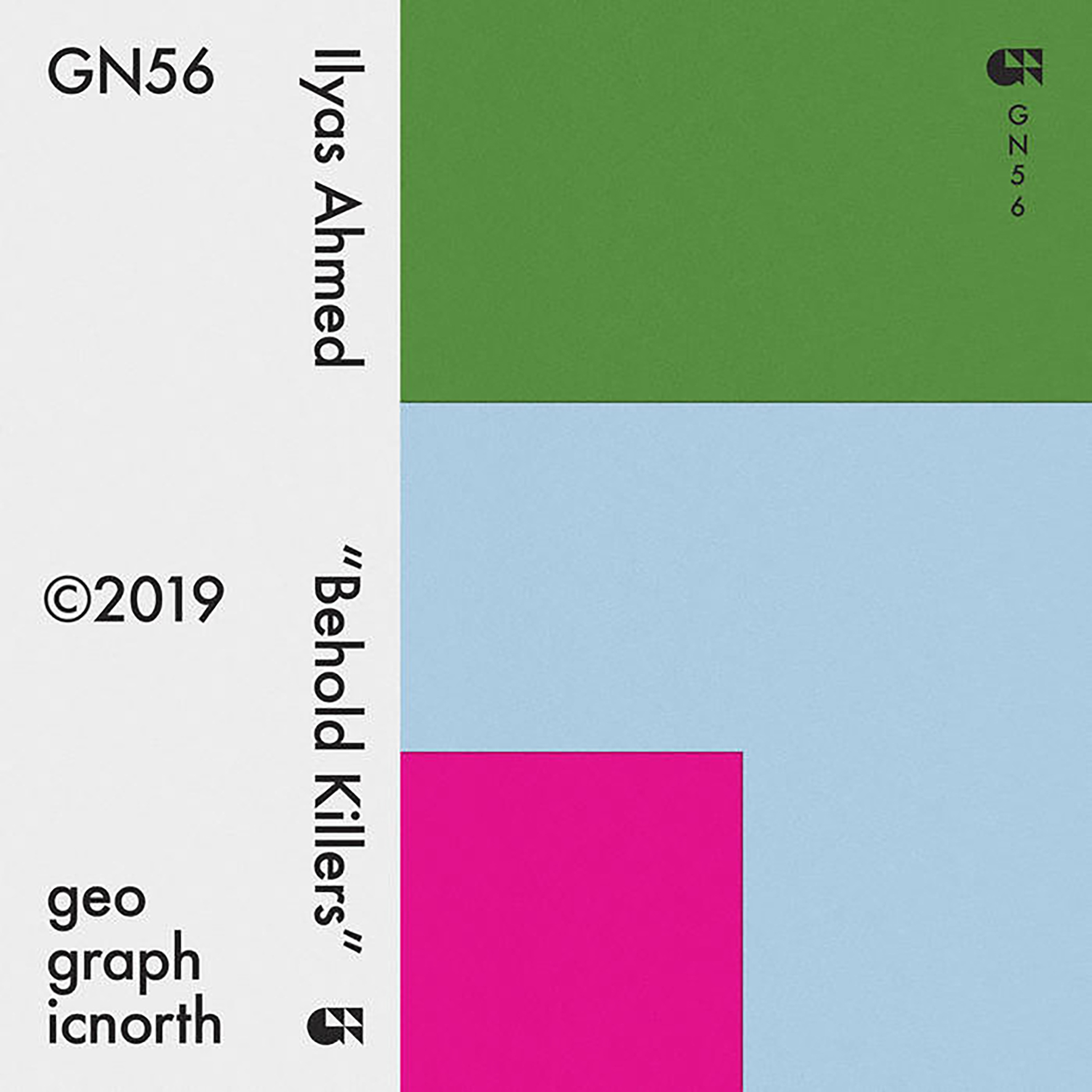Ilyas Ahmed, "Behold Killers"
 I have always found Portland’s Ilyas Ahmed to be an elusive and enigmatically unusual artist, though I have recently realized that I am basing much of that opinion on his 2005 debut (Between Two Skies). That album remains a cult favorite in some circles, as it exists in murkily melancholy and ghostly shadow realm between free folk and drone. The varied work that Ahmed has released in between that minor classic and this latest cassette has only made it more difficult to pin down his strange and shifting aesthetic, but it also feels as if no time has passed at all: Behold Killers returns once more to the blurry, diffuse gray area where structure, improvisation, drone, and experimentalism precariously coexist and bleed together. However, while the fluid approach to structure on this release is not a far cry from Ahmed's early days, the execution has improved considerably, as Behold Killers explore far warmer and more nuanced emotional territory than much of his previous work. I still find some elements of the album perplexing, of course, but it is anchored by a couple of excellent longform pieces.
I have always found Portland’s Ilyas Ahmed to be an elusive and enigmatically unusual artist, though I have recently realized that I am basing much of that opinion on his 2005 debut (Between Two Skies). That album remains a cult favorite in some circles, as it exists in murkily melancholy and ghostly shadow realm between free folk and drone. The varied work that Ahmed has released in between that minor classic and this latest cassette has only made it more difficult to pin down his strange and shifting aesthetic, but it also feels as if no time has passed at all: Behold Killers returns once more to the blurry, diffuse gray area where structure, improvisation, drone, and experimentalism precariously coexist and bleed together. However, while the fluid approach to structure on this release is not a far cry from Ahmed's early days, the execution has improved considerably, as Behold Killers explore far warmer and more nuanced emotional territory than much of his previous work. I still find some elements of the album perplexing, of course, but it is anchored by a couple of excellent longform pieces.
The first side of Behold Killers is devoted entirely to one of its strongest pieces, "Pass No Jazz."It also kind of an archetypal Ahmed composition in its unusual trajectory, as it opens as kind of a straightforwardly melodic classical guitar piece, yet gradually erases all traces of that original theme as it slowly blossoms into something quite different.Moreover, the path from the initial motif to the final destination in far from a linear one, as "Pass No Jazz" takes a series of detours that follow a kind of dream logic.Some of those detours are quite beautiful, such as the quavering, shimmering, and throbbing synth reverie that follows the disappearance of the acoustic guitar.After that fades, however, the piece becomes a sleepily tender vocal piece that unfolds over a simmering bed of guitar noise and synth drones.Gradually, however, sharper-edged swells emerge from the fog and cohere into swaying and swooning dance of sustained feedback-like tones.Then that dissolves to make way for a gently rippling final coda of wobbly, chorus-heavy arpeggios embellished with percussion that sounds borrowed from either a Tibetan Buddhist ritual or an ancient Japanese court.Throughout it all, I have no idea what is coming next and no ideas ever seem to overlap or repeat, which is a very strange and abstract compositional technique.On one level, it kind of sounds like five brief, unrelated pieces that have been loosely stitched together, yet they amount to a weirdly satisfying arc nonetheless.Still, I cannot shake the sense that at least two of those pieces could have been even better if they had been expanded and allowed to stand on their own.
To some degree, that approach pervades the entire album, though the number of discrete movements within each piece varies a bit.For example, the following "Metal Freedom" opens with an evocative and textured field recording of birds that swells into a very cool organ drone interlude, but the bottom then drops out completely and the piece re-emerges as a disorienting mélange of synth-based ambient, wordless vocals, and gnarled fragments of buzzing, distorted guitar.It feels a lot like some kind of sublime religious ritual being antagonized by large, extra-dimensional bees, which I suppose is a neat achievement.The following "Mad Love" is a comparative (and brief) aberration though, as Ahmed uncharacteristically sticks to just a single theme (woozy arpeggios mingled with hazy drones) for its three minutes, but it is mostly just a palette cleanser for the excellent closer ("Wild Violet").Happily, "Wild Violet" also holds onto a single theme for its entire duration, as it unfolds as a warm reverie of languorously tumbling and intertwining arpeggios over a lazily shifting and smoldering synth drone.As it progresses, however, more structured melodies start to take shape and moaning, buzzing swells billow up from the underlying drones.It is an absolutely gorgeous and perfectly focused piece that displays incredible patience, nuance, and lightness of touch.I could have happily listened to an infinite loop in this vein, but Ahmed instead abruptly and unceremoniously just cuts the piece off at the 8:56 mark.That was a very curious decision indeed.
Given that jarring conclusion to the album's most perfect piece, I definitely feel like I am no closer to understanding how Ahmed's mind works, yet Behold Killers has at least brought me much closer to understanding the appeal of what that mind can produce.If I did understand where Ahmed was coming from, I would hypothesize that pieces like "Pass No Jazz" are simply collages of unrelated improvisations and unfinished ideas or that he has some perverse urge to aggressively deconstruct and subvert all of his best motifs in service of a fragmented, non-linear flow.The focused and lovely "Wild Violet," however, seems to indicate that Ahmed is perfectly happy to linger on a single theme sometimes (until he runs out of tape, anyway).Given that, there is definitely an element of exasperation to this album, but I can only be exasperated if I actually like something in the first place and I do like this album: Ahmed does an excellent job combining biting, ravaged textures with passages of tender, fragile beauty.The catch is just that those delightful sounds and lovely interludes never quite stick around long enough to amount to a complete, fully formed piece.I have no idea if that is a mere stylistic idiosyncrasy or a sign that Ahmed's compositional talents are not yet on the same level as his ideas and I think I will just have to resign myself to that nagging ambiguity (if I haven't figured him out after 15 years, odds are strong that I never will).In any case, I enjoyed this tape–Behold Killers is a puzzling and flawed experience at times, but it is a frequently compelling one as well.
Samples can be found here.



